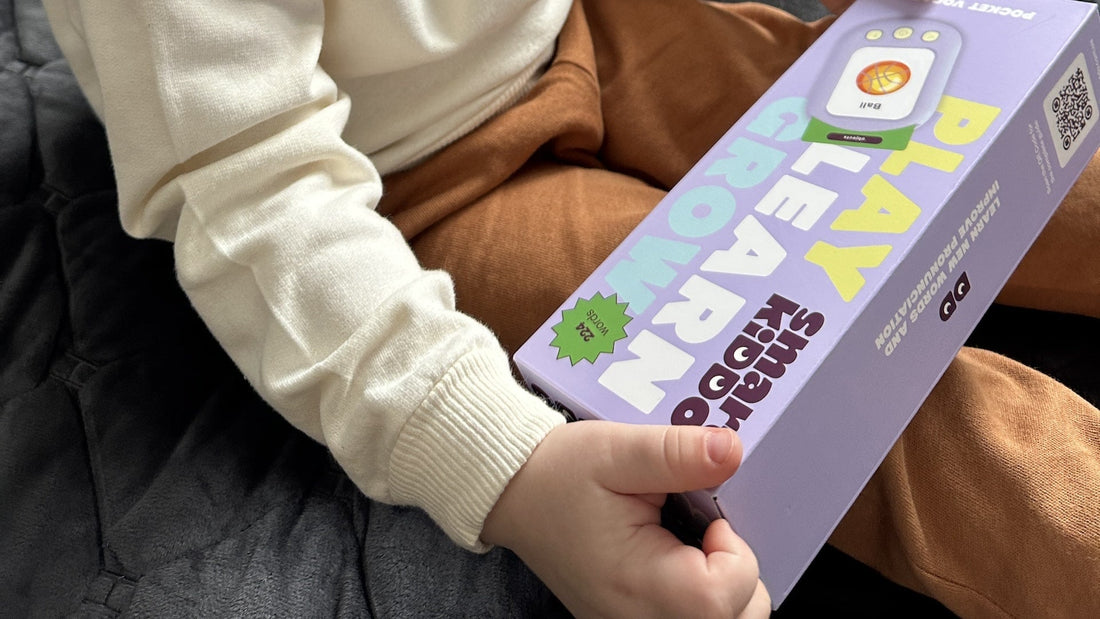
What kids miss when screens take over
Screens aren’t the enemy — but when they replace real-world experiences, kids miss out on crucial learning moments. Conversations, hands-on play, and problem-solving take a backseat. And the effects? Delayed speech, shorter attention spans, and less creativity.
So instead of focusing just on how to reduce screen time, let’s talk about what kids gain when screens take a step back.
What happens when kids unplug?
Words come easier
Kids learn to talk by hearing and practicing words in real-life conversations. Less screen time = more chances for back-and-forth interactions that boost speech development.
Attention grows stronger
Fast-paced screen content can rewire kids’ brains for quick dopamine hits, making it harder to focus. Off-screen activities — like building, storytelling, and pretend play — train their brains for longer, deeper concentration.
Problem-solving improves
Screens give instant answers, but real-world play makes kids think, experiment, and problem-solve on their own. That’s how creativity and confidence grow.
Social skills level up
Facial expressions, tone, and gestures — kids need these to build emotional intelligence. The more they interact in real life, the better they understand and respond to others.
A new approach: less screen time, more brain time
Instead of just "cutting screen time," try this mindset shift:
✅ Swap passive screen time for active engagement. Encourage activities that require speaking, listening, and problem-solving.
✅ Make boredom a good thing. Kids don’t need constant stimulation. Boredom sparks creativity — let them figure out how to entertain themselves.
✅ Rethink learning. Not all education happens on a screen. Hands-on play and storytelling teach vocabulary and communication in a way screens can’t. That’s where SmartKiddo comes in — combining fun and speech-focused learning without a single screen in sight. By encouraging kids to talk, listen, and play, it helps build real-world language skills that stick.
Real-life learning wins
Reducing screen time isn’t about rules and restrictions — it’s about giving kids back what screens take away. More words, deeper thinking, stronger relationships. That’s real learning.
References & footnotes
- American Academy of Pediatrics. (2019). "Screen time and young children: Promoting health and development in a digital world."
- Christakis, D. A. (2020). "The importance of play in early childhood development." Pediatrics Journal.
- Anderson, D. R., & Pempek, T. A. (2005). "Television and very young children: Effects of content and context on learning and development." American Behavioral Scientist, 48(5), 505-522.